The Effects of COVID-19 on People with Diabetes – Treatment and Diet Tips
Reviewed by: Dr Swamy K B | Author: Manoja Kalakanti
The Coronavirus 2019 pandemic has swept across the globe, causing large-scale social upheaval. As the pandemic rages on, new complications and new findings have come to light. It has been long known that older people, those with underlying medical conditions and a compromised immune system, are at a higher risk of developing severe complications. People with health conditions such as cardiovascular disease, diabetes and chronic respiratory illnesses are at a higher risk of suffering from severe complications due to COVID-19. 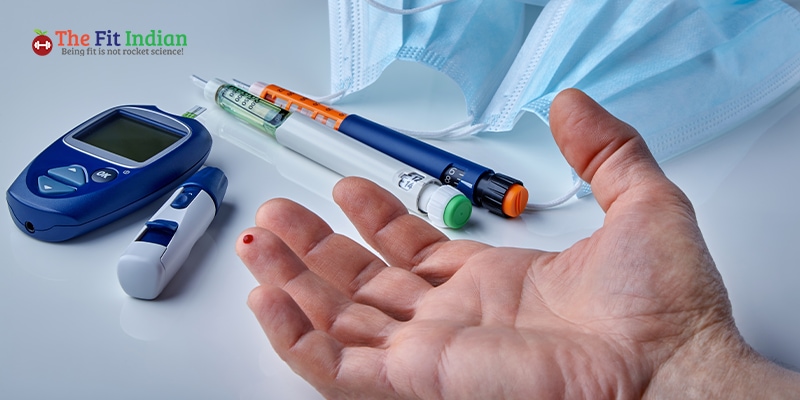
Some recent findings suggest that people recovering from this illness are developing diabetes. This article discusses the reason for this new phenomenon, the effect of COVID-19 on people with diabetes and the treatment and diet plans that could help patients fight and overcome the disease.
First, let us take a look at the connection between diabetes and the dreaded coronavirus 2019.
Click on the link below to learn more about diabetes.https://www.thefitindian.com/conditions/
Connection Between Diabetes and COVID-19
The new strain of coronavirus has wreaked havoc globally, and it continues its chaotic run with no end in sight. It has caused tremendous misery on public health, stretched the healthcare system to its limit and pushed economies back by years. A vast majority of people tend to recover from the condition without any health complications. But a certain part of the population has borne the brunt of its effects. 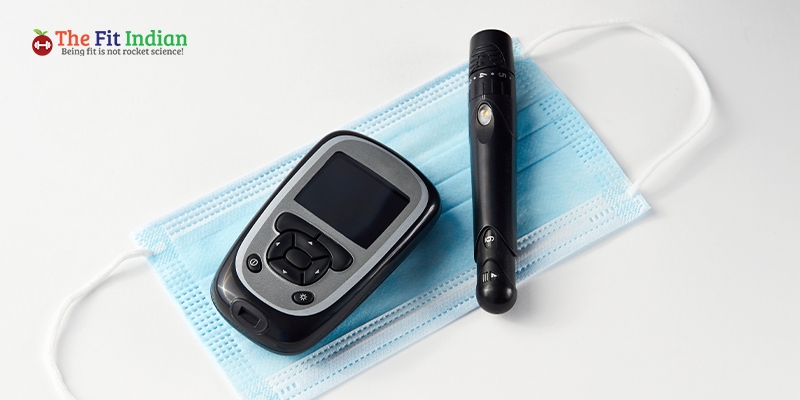 Older people, those suffering from chronic respiratory disorders, diabetes and cardiovascular disease, are at a higher risk of developing severe complications due to COVID-19. A compromised immune system and health are the reason for this complication. Studies show that many people who were admitted to the hospital with severe problems had diabetes. Even the death rate is higher among those with diabetes. One of the reasons is that high blood sugar weakens the immune system.
Older people, those suffering from chronic respiratory disorders, diabetes and cardiovascular disease, are at a higher risk of developing severe complications due to COVID-19. A compromised immune system and health are the reason for this complication. Studies show that many people who were admitted to the hospital with severe problems had diabetes. Even the death rate is higher among those with diabetes. One of the reasons is that high blood sugar weakens the immune system.
Diabetes Post-Recovery
Another phenomenon that has caused concern in the medical world is the development of diabetes in patients who recently recovered from COVID-19. More research is required to determine if the infection can result in diabetes. Many health experts believe that these patients were at the brink of diabetes and COVID-19 caused its early arrival. Now that you know the relation between diabetes and coronavirus, let’s take a look at how to avoid getting infected by the virus.
How to Avoid Coronavirus Infection
The tips to avoid getting infected by the coronavirus will be the same for people with diabetes as it is for others. But, people with this condition must take extra precautions.
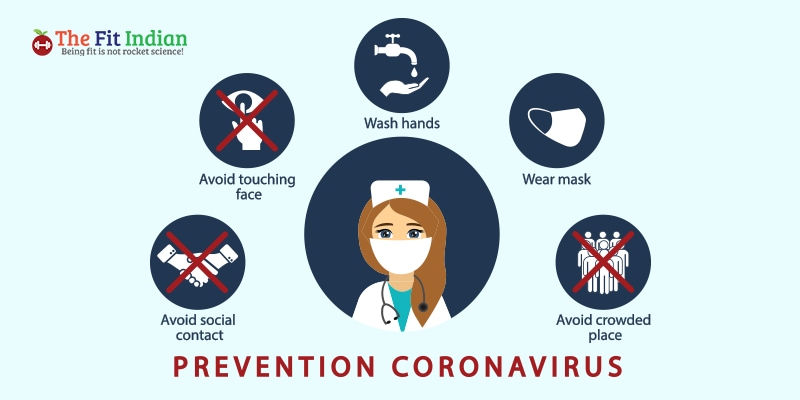 The precautionary steps to follow for the patients and those in close contact with them should be strictly followed.
The precautionary steps to follow for the patients and those in close contact with them should be strictly followed.
- Get vaccinated as soon as possible
- Try to stay at home as much as you can and avoid going out unless there is an emergency
- Request your employers to allow you to work from home
- Wash and sanitize your hands regularly, especially before touching the nose, eyes or mouth
- Maintain a distance of 6 feet from other people when outside
- Wear a mask, even better, double mask
- Don’t share food, utensils, clothes or other personal items with others
- Stay away from anyone in the house who is sick
- Sanitize surfaces that are touched frequently
These are universally observed rules for keeping the coronavirus at bay. But patients already suffering from diabetes must be even more careful. The most important of all of the above precautions is getting vaccinated. Not only does it reduce the probability of getting infected, but it would most likely reduce the effects of the illness if you do get infected. In case you do get infected, let’s look at the ways you can treat yourself.
Steps to Take if You are Infected
The steps to take when infected with COVID-19 are more or less the same for diabetic patients. But with patients of this condition, the blood sugar levels must be taken into account. The illness often leads to a lack of appetite, which could impact sugar levels.
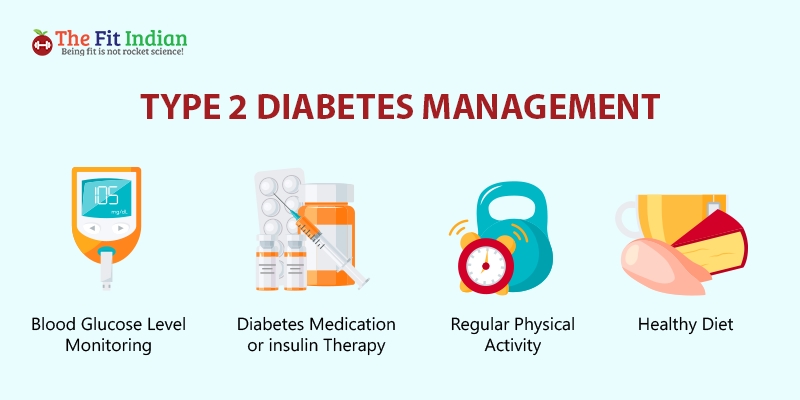 If you have diabetes, take the following steps to ensure that you keep the illness under control:
If you have diabetes, take the following steps to ensure that you keep the illness under control:
- Pay attention to your sugar levels
- Ensure that you are consuming enough fluids
- Have a backup plan in case your blood sugar drops dangerously low
- Boost your intake of nutrients by consuming large amounts of food. Make sure that enough food is within your reach at all times
- Certain medications can lower blood sugar levels. This makes keeping an eye on your sugar levels vital
- Some medicines can, on the other hand, increase your blood sugar levels
- Consult with your doctor before taking any over the counter medicines
- Immediately contact a doctor if your condition worsens
- Keep your diabetes medicines at hand and keep a good supply available at all times
- Do not exert yourself much and take enough rest
These steps should be observed religiously. At the first sign of severity in the condition, consult a doctor before the situation worsens. Now let us take a look at the treatment and diet plan post-recovery.
COVID-19 and Diabetes – Post Recovery Treatment and Diet Plan
Recovering from COVID-19 is not the end of the struggle against the disease. Many people have suffered extreme tiredness and other health problems even after months of recovering from the disease. While care during treatment is important to ensure survival and get rid of the illness, post-recovery care is crucial for returning to normalcy. It is crucial to maintain a strict diet and treatment plan to recover from the debilitating effects of the disease.
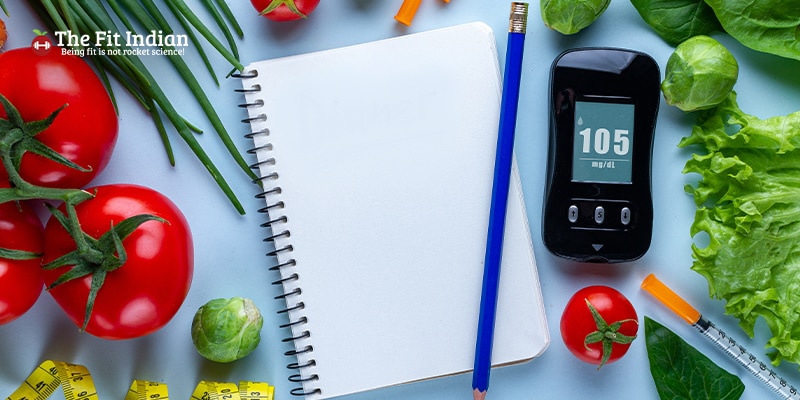 A well balanced and healthy diet is an essential part of the diet of a person with diabetes; this ensures that your blood glucose levels are steady and the immune system is strong. Take enough rest, drink lots of fluids, take your medicines regularly, and constantly check blood sugar levels and other health indicators. You can also follow a complete and healthy diet consisting of varied foods to ensure that your body receives all the nutrients it requires and recovers quickly.
A well balanced and healthy diet is an essential part of the diet of a person with diabetes; this ensures that your blood glucose levels are steady and the immune system is strong. Take enough rest, drink lots of fluids, take your medicines regularly, and constantly check blood sugar levels and other health indicators. You can also follow a complete and healthy diet consisting of varied foods to ensure that your body receives all the nutrients it requires and recovers quickly.
- Include green leafy vegetables and most other vegetables
- Foods with low glycemic index – non-starchy vegetables, oats, and fruits
- Healthy carbs – potatoes, banana, quinoa, and pulses
- Fruits
- Cereals – rice, wheat, ragi, oats, and jowar (They must be whole and not refined)
- Lean proteins – fish, eggs, meat and milk
- Avoid having excess salt
- You can consume simple sugar such as honey, candies and fruit juice in case your blood sugar drops
Following a healthy lifestyle is not an option but a necessity while recovering from the effects of coronavirus. To get a comprehensive diet plan, book a consultation with our nutritionist at https://www.thefitindian.com/blog/nutritionist-consultation/
Bottomline
Studies and statistics have shown that a COVID-19 patient with diabetes is at a higher risk of suffering from severe complications from the disease. It has also hinted at a possibility of the virus triggering the early onset of diabetes. Patients with diabetes have had a higher rate of experiencing severe issues and even mortality. And, post-recovery life could also be difficult due to the effects of the disease on an already weak immune system and body. Through special diets and treatment plans, patients can recover faster and keep diabetes under control.
FAQ’s
1. Can COVID-19 cause diabetes?
COVID-19 is known to cause many health issues, including the worsening of existing conditions. There have been many cases all around the world where a patient has developed diabetes post-recovery. But it is not yet ascertained that these two issues are interlinked.
2. How to prevent diabetes after COVID-19 recovery?
There have been cases of the onset of diabetes post-COVID-19 recovery. To avoid the possibility, you can exercise regularly, eat healthily, and monitor your blood glucose levels regularly.
3. What are the warning signs of diabetes to look for during COVID-19 infection and post-recovery?
COVID-19 could trigger diabetes in recently recovered patients. So, it is wise to look out for any signs that could suggest the same. People above 40 should be extra careful and watch out for signs such as extreme hunger, a spike in blood sugar levels, extreme thirst, slow recovery from injuries and frequent urination.
4. What is a diet plan for COVID-19 patients with diabetes?
Diabetes patients with COVID-19 need to keep their sugar levels low and boost the immune system. This can be achieved through a varied and balanced diet. Consume a diet rich in fruits, vegetables and protein. Consult a doctor and follow the recommended diet plan.
5. Why is it important to seek medical attention for diabetes?
Like many other health conditions, keeping diabetes untreated for a long time will result in severe health complications. It could cause damage to organs and even result in heart attacks and strokes.
6. Can a Diabetic patient recover from COVID-19?
The effects of the coronavirus on diabetes patients are harsher and lead to more severe complications than others. But with proper care, a diabetic patient can recover from the illness.
7. Who is at higher risk of developing serious illness from COVID-19?
People with underlying medical conditions such as diabetes, chronic respiratory illness, cardiovascular disease, cancer, a weakened immune system and older people are at a higher risk of developing severe illness from the virus.
8. Why are people developing diabetes after having COVID-19?
There have been many cases of people developing diabetes after recovering from COVID-19. Experts believe that these patients may have prediabetes and the illness or the subsequent treatment triggered the onset of diabetes.
9. How does COVID-19 affect diabetes patients?
People with diabetes are at the risk of developing severe complications from the virus. The death rate is also high among those with diabetes. But if the condition is well managed, then the effects of the coronavirus may be less dangerous.
10. Which organs are most affected by COVID-19?
The virus is known to affect almost every organ in the body. But the lungs are the ones that are mostly affected.

Manoja Kalakanti